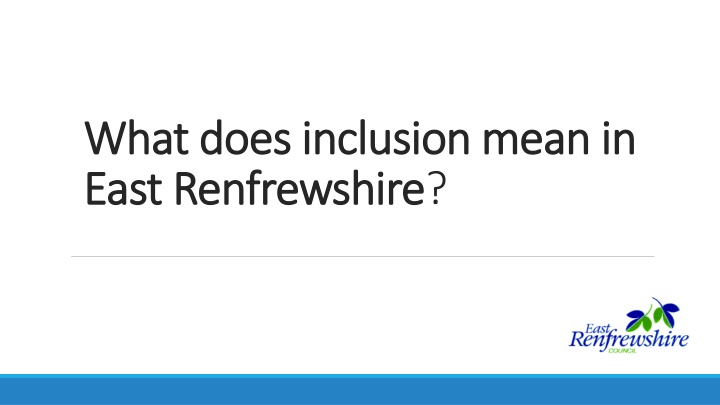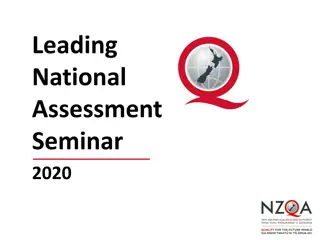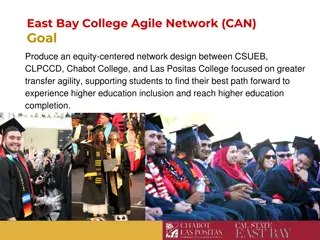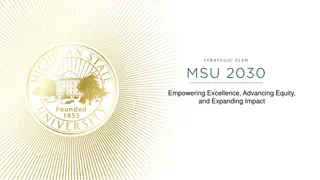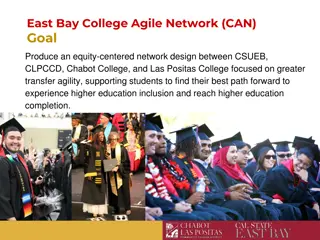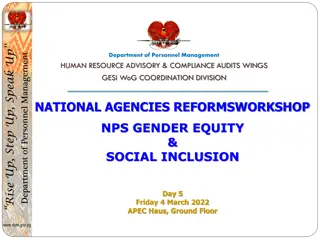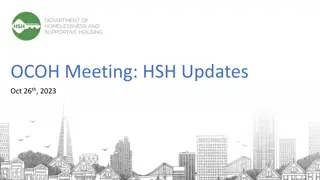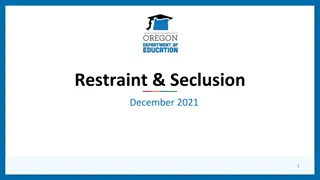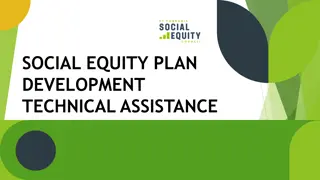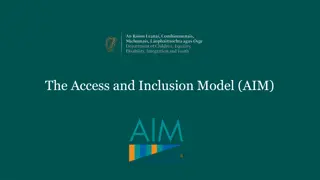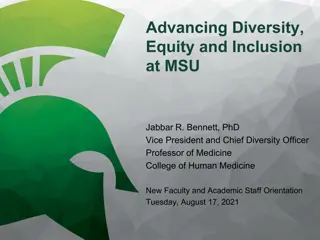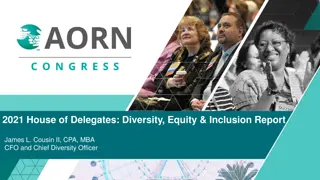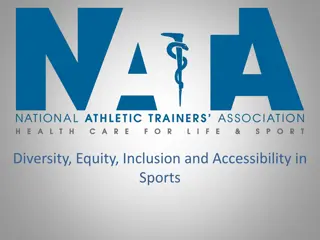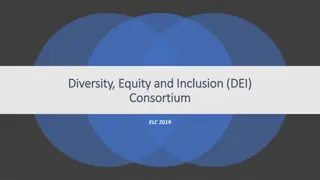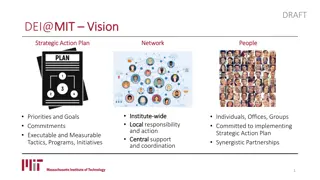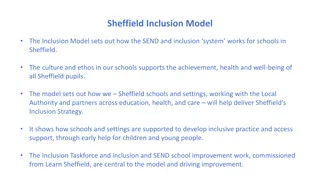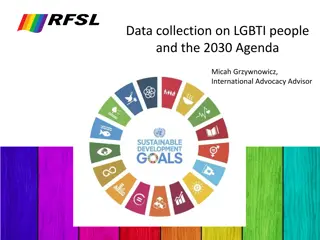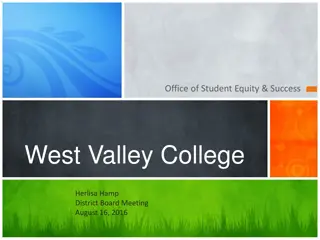Inclusion in East Renfrewshire: Achieving Equity in Education
Inclusion in East Renfrewshire emphasizes removing barriers to participation for all individuals in educational settings, not just those with additional needs. The approach is grounded in the belief that diversity should be recognized, and every child and young person should have the opportunity to reach their full potential. This inclusive ethos is reflected in practices and values upheld by staff. Strengths in the region include dedicated staff, effective transitions, diverse learner pathways, and strong partnerships.
Download Presentation

Please find below an Image/Link to download the presentation.
The content on the website is provided AS IS for your information and personal use only. It may not be sold, licensed, or shared on other websites without obtaining consent from the author.If you encounter any issues during the download, it is possible that the publisher has removed the file from their server.
You are allowed to download the files provided on this website for personal or commercial use, subject to the condition that they are used lawfully. All files are the property of their respective owners.
The content on the website is provided AS IS for your information and personal use only. It may not be sold, licensed, or shared on other websites without obtaining consent from the author.
E N D
Presentation Transcript
What does inclusion mean in What does inclusion mean in East Renfrewshire East Renfrewshire?
Inclusive education in Scotland starts from the belief that education is a human right and the foundation for a more just society. An inclusive approach which recognises diversity and holds the ambition that all children and young people are enabled to achieve their fullest potential is the cornerstone to achieve equity and excellence in education for all of our children and young people. The Scottish Government vision for inclusive education Guidance on the presumption to provide education in a mainstream setting (Scottish Government, 2019)
Inclusion is the process through which barriers to participation are removed. It is not restricted to those pupils with additional needs, it crosses the lives of every single child or young person, member of staff, parent and visitor to a school or early learning and childcare setting what is essential for some learners can be beneficial for all. It is not only the responsibility of specialist staff to support the wide range of learning needs of children and young people this support is everyone s job. In East Renfrewshire s educational establishments, inclusion is more than a laudable aspiration or rhetoric; however, inclusion is measured through the practices that are adopted as well as the values held by all staff. Revised Standard Circular 12: Inclusion
Present Participating Four Features of Inclusion Achieving Supported
Inclusive values and ethos Leadership Constructive challenge to attitudes Developing Inclusive Practice Evaluation of planning process Capacity to deliver inclusion Parental and carer engagement Early intervention, prevention and strong relationships Removal of barriers to learning
What What are are our current strengths? our current strengths? Highly committed, knowledgeable and skilled staff and a strong ethos of inclusion Effective transitions Variety of learner pathways Practitioner forums Educational Psychology Service Some excellent examples of effective partnership working
What are our current strengths? What are our current strengths? Greater flexibility and creativity in meeting needs Increasing focus on collaborative practitioner enquiry Nurturing approaches Family and parenting supports Continued low levels of exclusions Almost all children and young people with complex needs are supported within ERC with a few appropriately placed in external provision
What are our challenges? What are our challenges? Increasing numbers of children and young people with additional support needs, which are more complex Meeting the needs of these children and young people whilst also targeting resources towards prevention and early intervention Access to physical space that supports flexibility and creativity in meeting needs Competing demands Supporting staff wellbeing
What are our challenges? What are our challenges? Increasing issues in relation to children and young people s mental health and wellbeing, including attendance Managing the expectations and demands of some of our parents The poverty related attainment gap Improving outcomes for our looked after children and young people Working effectively in partnership with other agencies who are under pressure and have raised thresholds for assessment and intervention
Present, Participating, Achieving and Supported Present, Participating, Achieving and Supported CLPL Inclusion Programme CLPL Inclusion Programme
CLPL Inclusion Programme CLPL Inclusion Programme Evidence-Based Practice Capacity Building Implementation Science Sustainability Local and National Priorities
CLPL Inclusion Programme Present Supported Participating Achieving Key Theme 1 Key Theme 1 Promoting Attendance, Engagement and Achievement Key Theme 2 Key Theme 2 Supporting Emotional Wellbeing and Mental Health Key Theme 3 Key Theme 3 Nurturing Approaches and Compassionate, Connected Communities RELATIONSHIP - BASED APPROACHES
Principal Training Programmes Principal Training Programmes Understanding and supporting pupils with ASD Understanding and supporting pupils with ASD Promoting Resilience and Emotional Wellbeing in Promoting Resilience and Emotional Wellbeing in Primary Schools: building capacity amongst staff Primary Schools: building capacity amongst staff The Compassionate and Connected Community The Compassionate and Connected Community
Model of Training Model of Training Coaching and Coaching and Application Application Training Training Accessing Accessing Tools and Tools and Resources Resources Developing Developing Tools and Tools and Resources Resources Knowledge and Skills
Key Theme 2: Supporting Emotional Wellbeing and Mental Health Timescale Facilitators Title Aims and Outcomes Participants Critical Activities Promoting Resilience and Emotional Wellbeing in Primary Schools Building capacity amongst primary staff to support mental health and wellbeing and deliver group work *details in Appendix Launch at Inclusion Conference 2019-2020 EPS Primary staff in one cluster HealthiER Minds Framework to support mental wellbeing Familiarising staff with the HealthiER Minds Framework to ensure a staged approach to supporting children and young people s mental wellbeing Launch in autumn of this year EPS HSPC HTs HealthiER Minds leaflet for parents and supporting children and young people Session to assist schools in supporting parents to promote their child or young person s wellbeing Sessions for school/parents following launch EPS HTs/school/parents 19th and 26th September (further date to be added) Mental Health First Aid (Adult) Course to increase awareness and understanding of mental health EPS Education Staff
